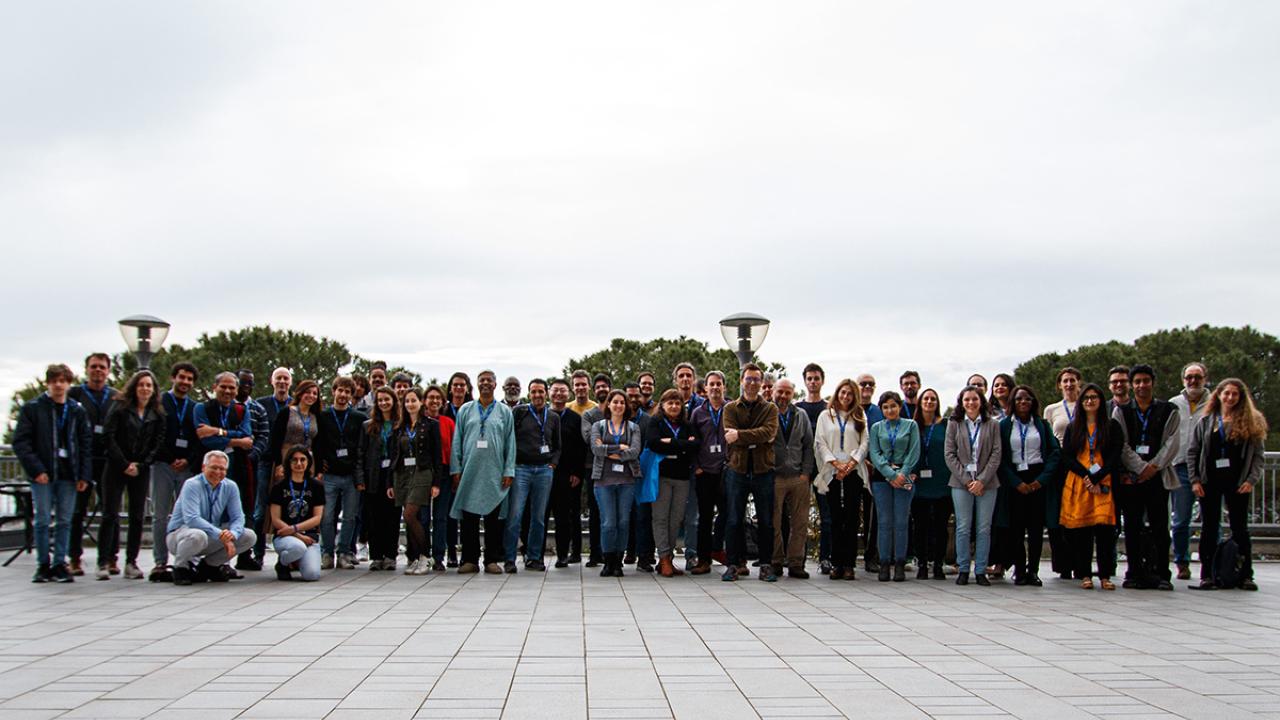
The term “inequality” conjures ideas of disparate treatment of men and women, or people of different ethnicities, but what is inequality from a mathematical perspective? What are its scope and limitations, and how does inequality function at various scales and in different situations? The recent Workshop on Inequality Across Scales, Space, Time and Domains at ICTP, run in collaboration with OGS and Trieste International Foundation for the Progress and Freedom of Sciences (FIT) as part of the Trieste Laboratory on Quantitative Sustainability (TLQS) initiative, focused on these questions.
Physicists working on problems from demography, economics, political science, sociology, ecology, biology and neuroscience attended the week-long workshop at ICTP in April 2023, which was the second event of its kind to be organised at ICTP.
“There were 20 invited speakers from a range of countries. We aimed for a broad geographical distribution of participants, and many young scientists and PhD students attended, who were then able to interact. The young scientists were really engaged in this topic,” says local organizer, Matteo Marsili, senior research scientist with ICTP's Quantitative Life Sciences (QLS) section. “There are many efforts to address different aspects of sustainability, such as energy or climate change. However, there is little science dealing with integrating the various aspects of sustainability across disciplines, and there are no major conferences on this issue. With respect to inequality, there are different communities of researchers working on this subject, but it's a fragmented community.”
The researchers at the workshop were united by similar quantitative approaches and understandings of the behaviour of collective phenomena, based on statistical physics and statistical mechanics. “We also wanted to make contact with those working in other disciplines, such as economists, social scientists, demographers, ecologists, and ideologists,” adds Marsili.
“The idea is that this activity will maybe spawn other activities of this type; more of this kind of research.”
There are several institutes across the world that focus on sustainability, such as the International Institute for Sustainable Development, Institute for Managing Sustainability in Vienna, and Santa Fe Institute. “This type of event is a way of connecting people,” explains Marsili. “There is also not much of this research in developing countries, although there are scientists there who are very sensitive to sustainability. At the workshop, we had various participants from Latin America, India, and some from Africa. With time, this network will hopefully expand.”
Most of the researchers at the workshop were meeting for the first time, and so a high level of interaction was key. Three days of seminars were followed by two days of less structured interaction. The participants split into groups on subjects that were decided during the workshop, and held meetings and discussions.
The objective of the workshop was to gather those engaged in interdisciplinary quantitative work and run seminars on its various aspects, to provide complex system scientists with a broader view of the field, without the objective of producing a particular result. The seminars addressed various topics; for example, describing equality from a historical or cultural perspective, and discussing why polarisation develops for some traits, such as race, and not for others, such as eye colour.
“In terms of societal issues, there was a very interesting talk by an economist who discussed the idea that whatever social structure we develop, we feel the need to justify it; to have a cultural justification for a particular political system,” adds Marsili. “We experience this tension between hierarchies and egalitarianism, and essentially how social structures change can be understood.”
The organisers are planning more events on this theme. “We’ve realized that it’s a good format,” says Marsili. “Next year we’ll run another meeting on collective agency, which is related to the fact that even if the solution to a problem exists, its implementation can be difficult. One has to understand the limits of implementation, which are related to a number of factors, such as financial concerns, the information gathering approach employed, and bias, which occurs with information distortion caused by fake news. “The main idea of meetings like these is to help people meet and promote discussion. One key point about ICTP is that a lot of researchers met for the first time here, which makes this a special place for many people.”
















